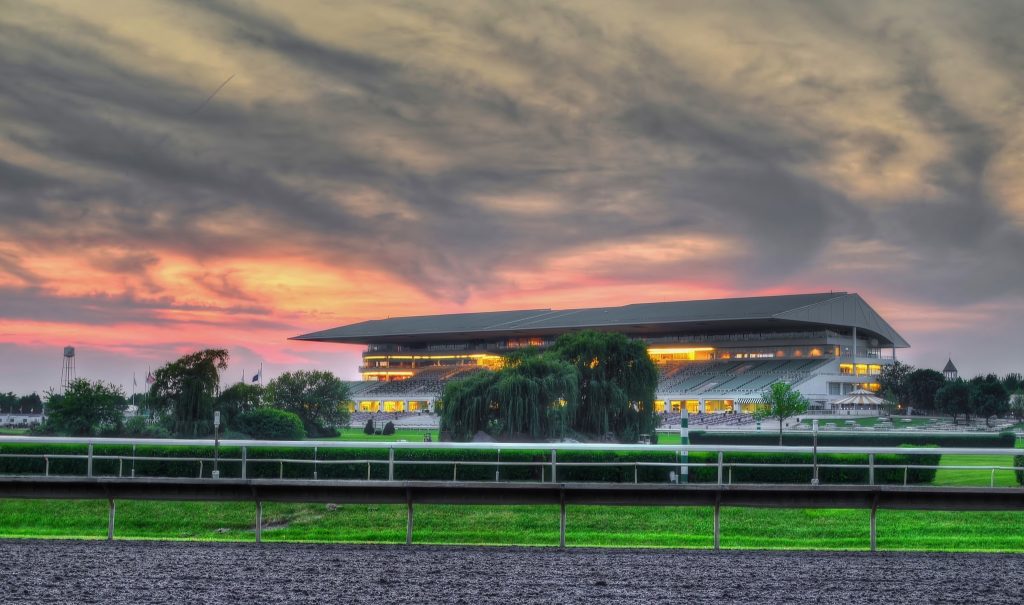
The Business of Racing:
By Steve Zorn
Not so long ago, Arlington Park near Chicago was one of the jewels of the summer racing circuit. The home of the first million-dollar race in the US – the 1981 Arlington Million won by the great John Henry, Willie Shoemaker aboard – Arlington used to run 90 race days from May through September, and as recently as 2012 paid out nearly $30 million in purses and took in over $230 million in handle.
Fast-forward to 2020, when Arlington ran only 245 races in a pandemic-shortened 30-day meet, with handle barely reaching $46 million. But, even apart from COVID-induced contraction, the Arlington meet is a faint shadow of what it was not so long ago. In 2019, for example, the track was open for only 71 days, and handle was $145 million, down some 37% in less than a decade, at a time when total US handle, in nominal, non-inflation-adjusted, dollars was more or less flat.
Since its opening in 1927, Arlington has been through good and bad owners. Ben Lindheimer, who bought the track in 1940, and his daughter Marge Everett (who was also Hollywood Park’s owner before Churchill Downs Inc. bought that track and then closed it down), were hailed as saviors of Chicago racing. But when Everett sold the track to the Gulf & Western Corp., a leading corporate conglomerate of the time, in 1968, corporate management presided over a 15-year decline, ending only when Richard Duchossois bought the track in 1983. Duchossois kept things going even when a fire destroyed the grandstand and clubhouse in 1985, but eventually shut down for two years in 1998-99 in a dispute with the Illinois taxing authorities. Enter Churchill Downs Inc., which acquired Arlington in 2000 in a merger that made Duchossois for a time the largest single CDI shareholder. With the Duchossois family’s sale of their CDI shares and departure from the CDI Board in 2017, Arlington’s fate is now entirely in the hands of CDI’s corporate managers. And, as was the case when Gulf & Western owned the track, what’s good for CDI’s bottom line and share price is not necessarily what’s good for racing or Chicago bettors and horse people.
Arlington has been one of the few major tracks without some sort of purse supplement from slot machines, although it does get some additional income from its network of a dozen or so OTB parlors in the Chicago area. In 2019, Illinois legalized sports betting, authorizing race tracks, among other entities, to apply for casino licenses that would offer online sports wagering. The state’s other tracks, Hawthorne and Fairmount, promptly applied, and just this week Hawthorne was granted a license for a sports book in one of that track’s suburban OTB parlors. In a stunning betrayal of Illinois horsemen, who had negotiated with CDI over the split of casino revenue, CDI failed to submit a casino application for Arlington. So, Arlington heads into an already precarious future without the casino/sports betting income that props up many other tracks.
This year, Arlington is slated to run 68 racing dates from May through September, under an agreement between CDI and Illinois horsemen hammered out under strong pressure from the state racing board. But, with good reason, the horsemen don’t fully trust CDI. At last week’s meeting of the Illinois Racing Board, they asked that the state hold some $5 million in “recaptured” purse money in escrow, until the 8 racing days are actually run. (“Recapture” is an Illinois-specific law that allows a track to pull money back out of a track’s purse account if handle drops below a 1994 benchmark level. It’s one reason why the ratio of purses to handle has fallen from 12.5% in 2012 to barely 10% in 2019.) Despite their experience in last year’s negotiations over racing dates, and despite CDI’s refusal to make a formal written commitment to 68 race days, the Board went ahead and unanimously let CDI withdraw the money from the purse account. As of now, it’s too early to tell if the purses at Arlington this summer will be high enough to keep enough horses in the barns to fill races, but the outlook certainly isn’t positive.
CDI, despite using the name of the iconic Louisville track as its corporate identity, is no longer really about horse racing. Its major activities are online betting (through the Twin Spires ADW), casinos, and the two-day Kentucky Derby-Oaks extravaganza. Just last year, in fact, CDI relegated Arlington and Turfway to the catch-all “all other” business category in its annual report to the US Securities and Exchange Commission, marking the end of even a pretense that the company was mostly about racing. These days, CDI is run by a trio of top executives – CEO Bill Carstanjen, COO William Mudd and CFO Marcia Dall – all of whom were at that decidedly non-racing company General Electric for the formative parts of their careers. Not a horseman in the bunch. And CDI has already presided over the closing of two of its premier tracks – Hollywood Park in 2013 and Calder just last year. In each case, CDI had owned the track for 20 years or less, so Arlington, which CDI purchased in 2000, may well be approaching its “sell by” date. Last July, CEO Carstanjen said that Arlington “will have a higher and better purpose for something else at some point.” It’s pretty safe to say that the “something else” means being sold off for its real estate value. And if I were betting, I’d set the over/under on Arlington’s remaining years as a race track in the low single digits. While it’s true that the US racing industry needs to contract, it’s not so clear that the way to do it is by closing the better venues, like Arlington, Hollywood and Calder. Nor is it at all clear that corporate ownership of tracks, whether by Gulf & Western, CDI or the casino companies that own many smaller tracks, is good for the survival of the sport. Corporate imperatives of quarterly profits and a focus on the stock price above all may produce high salaries and nice bonuses for the executives (Carstanjen made over $10 million in 2019), but a different ownership structure, whether by a non-profit, as at NYRA or Keeneland, or by a billionaire who happens to care about racing, might be better for the game.
Photo Image Provided by: By bogdanstepniak, CC BY 3.0, https://commons.wikimedia.org/w/index.php?curid=54750171



